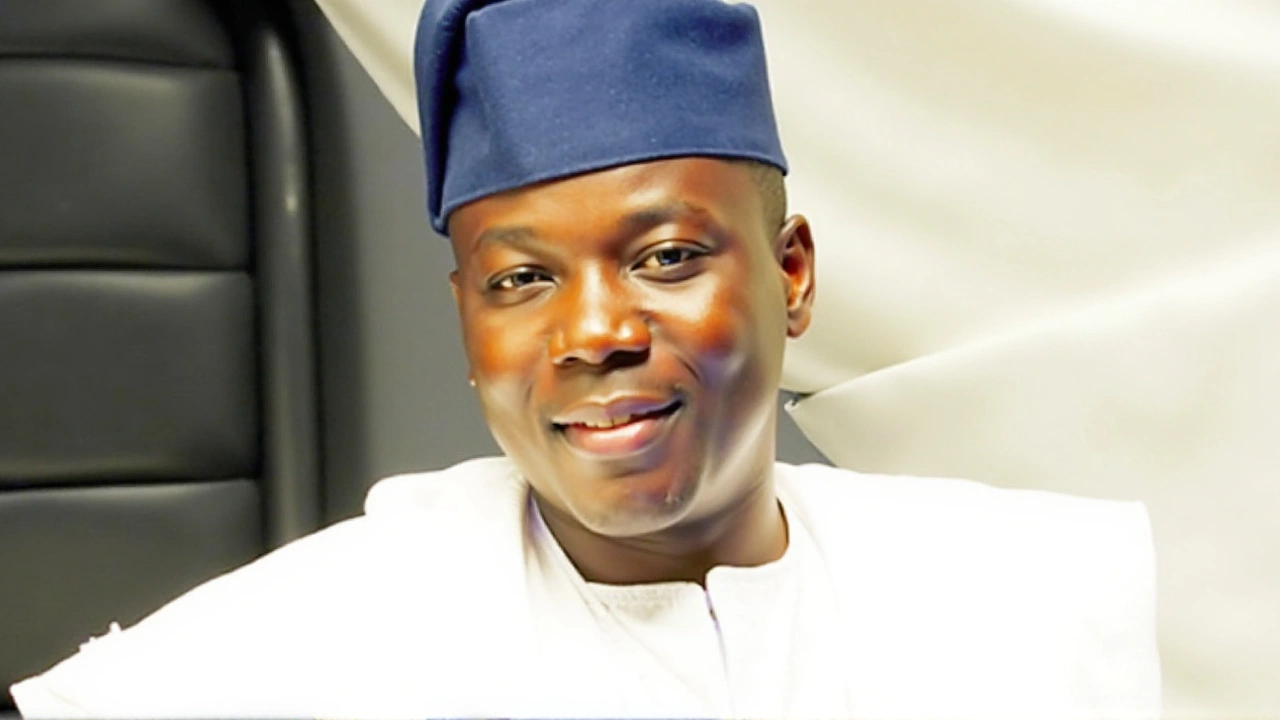Sunday Igboho's Push for Yoruba Nation Gains Momentum
In a significant move for the Yoruba self-determination movement, Sunday Adeyemo, widely known as Sunday Igboho, has reached out to a global power. On behalf of the Yoruba Nation's leader, Prof. Adebanji Akintoye, Igboho submitted a petition to the UK Prime Minister, Keir Starmer, at the famous 10 Downing Street in London. This action signals a pivotal point in the Yoruba Nation's campaign, emphasizing the growing international ambitions of the movement seeking a separate state for the Yoruba people.
The Journey to Downing Street
Accompanying Igboho in this critical mission were several prominent figures from the Yoruba diaspora. They included the Diaspora Youth Leader, Prophet Ologunoluwa, Vice President of Ifeladun Apapo, Fatai Ogunribido, General Secretary of Yoruba World Media, Alhaja Adeyeye, and member Paul Odebiyi from Yoruba Nation Movement. Each holds a pivotal role in driving the narrative of Yoruba autonomy. Their collective presence underscores a united front as they petition one of the world's most influential leaders for support.
Historical Context of the Yoruba Nation Movement
The push for a Yoruba nation is deeply rooted in the historical and cultural identity of the Yoruba people, one of Nigeria's largest ethnic groups. The movement has seen various leaders through the decades, with Prof. Adebanji Akintoye and Sunday Igboho becoming prominent figures in recent years. The campaign gained international headlines when Igboho was arrested in July 2021 in Cotonou, Benin Republic.
Legal Troubles in Nigeria and Benin
Igboho's arrest came at the behest of the Nigerian government, which charged him with arms smuggling, inciting violence, and advocating for secession. His detention sparked widespread outcry among his supporters, who viewed it as an attempt to stifle the independence movement. After several months of being held, Igboho was released in 2023, a moment that reinvigorated the push for a Yoruba nation and his role in the movement.
Reactions to the Petition
The submission of the petition to the UK government is audacious, aiming to leverage international support for the Yoruba cause. It reflects an understanding that global recognition and backing can significantly impact local movements. While it remains unclear how the UK government will respond, the effort to involve international stakeholders highlights a strategic shift in the Yoruba Nation's approach to achieving autonomy.
The Significance of International Intervention
International intervention in self-determination movements isn't new. History is replete with examples where diplomatic efforts from other nations have mediated or influenced the course of such campaigns. By seeking the support of the UK, a former colonial power with historical ties to Nigeria, the Yoruba Nation movement is perhaps hoping to gain legitimacy and a more attentive ear on the global stage.
The Future of the Yoruba Nation Movement
The petition's submission is only the beginning of what is likely to be a long and arduous journey for the Yoruba people seeking self-governance. It remains to be seen how the Nigerian government will respond to this development and whether there will be a direct engagement or diplomatic maneuvering to counter it. For Igboho and his compatriots, the road ahead will involve managing local expectations, building a broader coalition of support, and continuously navigating the complex web of international diplomacy and politics.
Conclusion and Implications
As the Yoruba Nation movement presses forward, its leaders are emboldened by a sense of historicity and cultural responsibility. The plea to the UK Prime Minister underscores the growing importance of external acknowledgment in regional autonomy movements. Whatever the outcome, Sunday Igboho's actions are carving yet another chapter in the perennial discourse on national identity, sovereignty, and self-determination in the heartlands of Africa.

Peter Novák
October 14, 2024 AT 20:07Siphosethu Phike Phike
October 16, 2024 AT 04:53Mitchell Ocran
October 17, 2024 AT 23:28Todd Gehrke
October 18, 2024 AT 00:55Allison Brinkley
October 18, 2024 AT 15:10Ghanshyam Kushwaha
October 19, 2024 AT 03:07eliana levi
October 20, 2024 AT 14:16Brittany Jones
October 20, 2024 AT 19:40SUBHANKAR DAS
October 22, 2024 AT 07:13Secret Lands Farm
October 23, 2024 AT 17:27Tamir Duberstein
October 23, 2024 AT 19:19John Bothman
October 24, 2024 AT 03:36Dinesh Gupta
October 25, 2024 AT 05:41Shalini Ambastha
October 25, 2024 AT 17:13Amanda Kelly
October 27, 2024 AT 12:01Jessica Herborn
October 28, 2024 AT 17:56Lakshmi Narasimham
October 29, 2024 AT 21:11Madhuri Singh
October 31, 2024 AT 14:22Secret Lands Farm
October 31, 2024 AT 14:22